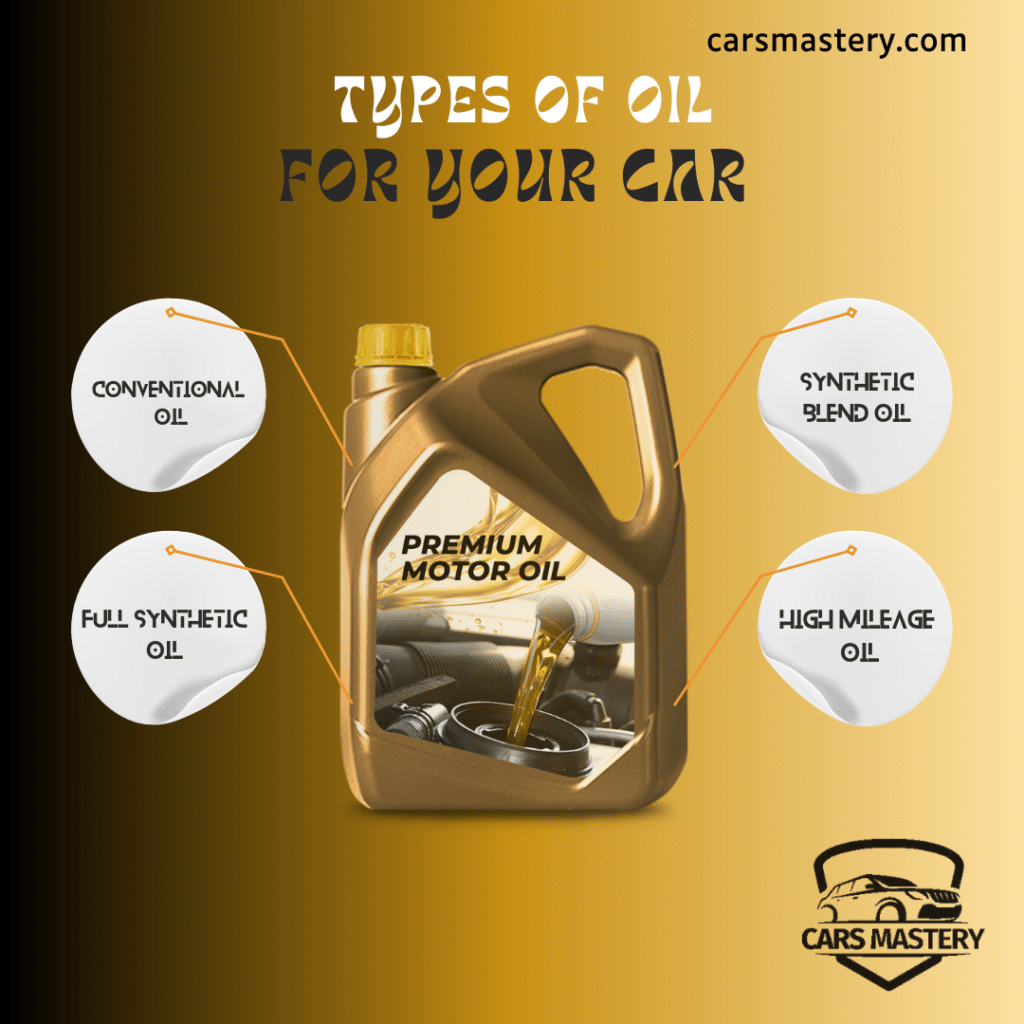Table of Contents
Ready for a long exciting road trip journey? All set? Checked the fuel in your tank? Going out on amazing road journeys is always a thrilling experience but your fuel must always be in check before taking out your car. However, have you ever thought to yourself; what oil my car takes? Now, the point to ponder here is; if you want your automobile to last and function at its best, you must know what oil it needs. Correct engine oil is essential for your car’s smooth operation since it lubricates the moving parts, reduces friction, and protects them from wear and tear. Motor oil is an integral part of car maintenance. Let us explore all you need to know about it, from identifying the best kind to how much to use and why. First let us learn why the correct choice of oil is necessary for your car to work well.
Why Is Choosing the Right Oil Important?
Have you ever wondered why choosing the right kind of oil for your car is essential? If you want your automobile to last and function well, you must get the engine oil right. Lubricating the moving parts with engine oil reduces friction and heat, minimizing overheating and excessive wear. The engine’s lifespan is increased, and fuel efficiency is improved. To get the most out of your vehicle, follow the manufacturer’s recommendations for the oil type, conventional, synthetic blend, or complete synthetic, and use it correctly. Refer to your vehicle’s handbook or the oil cap for details on the recommended oil type. Poor engine efficiency and higher maintenance costs might result from using the incorrect type or grade of oil. To keep your car operating smoothly, always use the oil type and capacity recommended for your vehicle. Let’s take a look at what various types of oils your car uses.

Types of Oil for Cars
Here are some of the types of car oils you use for your automobile engine.
Conventional Oil
First, there is the conventional oil.
- Basic and affordable, ideal for older engines.
- Requires more frequent changes to maintain performance.
Full Synthetic Oil
Next type of car oil oil is synthetic oil.
- Provides superior protection for high-performance engines.
- Resists breakdown in extreme temperatures and heavy-duty use.
Synthetic Blend
Another oil used is the synthetic one in cars.
- Combines conventional and synthetic oils for better protection.
- Offers a balance between cost and performance for moderate demands.
High Mileage Oil
Lastly, there is mileage oil used for cars.
- Contains additives to reduce leaks and oil consumption in older cars.
- Enhances engine performance and longevity for vehicles over 75,000 miles.

Choosing the Right Oil: Key Factors to Consider
Now, selecting the right kind of oil for your car is essential. Here’s a look.
- Engine Size: Larger engines generally need more oil and filter and may require higher viscosity oil.
- Manufacturer Recommendations: Always follow the manufacturer’s guidelines in terms of oil type, viscosity, and grade.
- Driving Conditions: If you drive in extreme hot or cold temperatures or use your car for towing or off-road driving, you may need synthetic oil for better protection.
- Oil Capacity: Check the owner’s manual to determine how much oil your car needs when you perform an oil change.
How Much Oil Does My Car Need?
The amount of oil your car requires depends on the engine size and type of vehicle. On average;
- 4-cylinder engines usually require about 4 to 5 quarts of oil.
- 6-cylinder engines need around 5 to 6 quarts.
- 8-cylinder engines may need as much as 7 to 8 quarts.
It’s important to check the oil capacity in the owner’s manual for your specific vehicle. Overfilling or underfilling the engine oil can lead to performance issues or engine damage.

How Often Should You Change the Oil?
Oil changes are a crucial part of car maintenance. The frequency of oil changes depends on the type of oil you use;
- Conventional Oil: Typically, it needs to be changed every 3,000 to 5,000 miles.
- Synthetic Oil: Can last longer, often between 7,500 and 10,000 miles.
- High Mileage Oil: Similar to synthetic oil but should be changed according to your specific vehicle’s needs.
Regular oil changes help keep your engine running smoothly, reduce the risk of breakdowns, and improve your car’s overall performance. Also, regularly check your car’s maintenance and make sure that you read the complete manuals on adding oil to your car.

Final Thoughts
Summing up, for peak performance and extended vehicle life, it is crucial to use the correct oil. For information on the type and amount of oil your vehicle requires, see the owner’s handbook or oil cap Also, for when and where to put the oil. Check the manufacturer’s recommendations for your vehicle’s needs and choose between conventional, synthetic blend, or full synthetic oil. If you want your engine to run smoothly and last as long as possible, you must regularly replace the oil using the correct oil quality and capacity.
In conclusion, stay informed about your car’s oil demands, and follow the suggested plan for reliable maintenance. You should always look to the manual or an expert when you are unsure of something.
Oil up your car, put the gear and cruise away!

